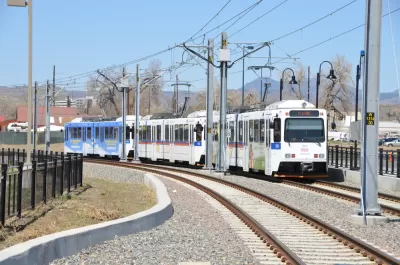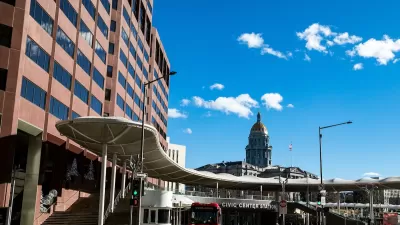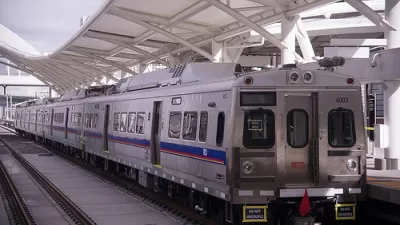Lawmakers say the agreement prevents a drawn-out legislative battle and establishes a new source of transit funding.

Colorado lawmakers have agreed to drop one set of air quality legislation and propose two new bills to “codify agency rules that cut smog-forming compounds from drilling operations into state law and establish a new fee for oil and gas production” in an effort to prevent a lengthy ballot process and legislative back-and-forth and to create a new source of transit revenue. “Kelly Nordini, the CEO of Conservation Colorado, said the agreement offered a better outcome than pursuing a divisive and complicated ballot fight this fall.”
According to reporting by Sam Brasch, Nathaniel Minor, and Bente Birkeland for Colorado Public Radio News, “State. Sen President Steve Fenberg, D-Boulder, said the new fee is expected to generate an average of $138 million annually. Eighty percent of the new revenue stream would go toward public transit across the state, including a potential Front Range rail line. The other 20 percent would support parks and wildlife conservation.”
The new funding could help complete the Regional Transportation District’s (RTD) FasTracks rail construction plan that voters approved in 2004 and which remains incomplete. Of the projected new transit revenue, 70 percent would go to local operations and the rest would fund state rail projects and grants.
FULL STORY: Gov. Polis announces major oil and gas truce in exchange for transit funding

Alabama: Trump Terminates Settlements for Black Communities Harmed By Raw Sewage
Trump deemed the landmark civil rights agreement “illegal DEI and environmental justice policy.”

Study: Maui’s Plan to Convert Vacation Rentals to Long-Term Housing Could Cause Nearly $1 Billion Economic Loss
The plan would reduce visitor accommodation by 25% resulting in 1,900 jobs lost.

Why Should We Subsidize Public Transportation?
Many public transit agencies face financial stress due to rising costs, declining fare revenue, and declining subsidies. Transit advocates must provide a strong business case for increasing public transit funding.

Paris Bike Boom Leads to Steep Drop in Air Pollution
The French city’s air quality has improved dramatically in the past 20 years, coinciding with a growth in cycling.

Why Housing Costs More to Build in California Than in Texas
Hard costs like labor and materials combined with ‘soft’ costs such as permitting make building in the San Francisco Bay Area almost three times as costly as in Texas cities.

San Diego County Sees a Rise in Urban Coyotes
San Diego County experiences a rise in urban coyotes, as sightings become prevalent throughout its urban neighbourhoods and surrounding areas.
Urban Design for Planners 1: Software Tools
This six-course series explores essential urban design concepts using open source software and equips planners with the tools they need to participate fully in the urban design process.
Planning for Universal Design
Learn the tools for implementing Universal Design in planning regulations.
Smith Gee Studio
Alamo Area Metropolitan Planning Organization
City of Santa Clarita
Institute for Housing and Urban Development Studies (IHS)
City of Grandview
Harvard GSD Executive Education
Toledo-Lucas County Plan Commissions
Salt Lake City
NYU Wagner Graduate School of Public Service





























